With rates of depression, anxiety, and suicide on the rise for college students, Colorado State University offers a host of accessible resources for students and the campus community. Offered through the CSU Health Network, they range from in-person and telehealth counseling sessions to online programs that allow students to work at their own pace toward their mental wellness goals.
“There continues to be significant efforts to develop and promote wellness tools for students because we know that academic success is tied to well-being,” said Janelle Patrias, the manager of mental health initiatives at the CSU Health Network. “The data we collect (using the National College Health Assessment) show increasing rates of several mental health indicators such as loneliness and anxiety, both at CSU and nationally. And, of course, staff and faculty are not immune to needing resources to support their well-being, which is why it is helpful when we can partner with Human Resources to leverage tools (such as YOU@CSU and SilverCloud) for employees as well.”
YOU@CSU launched in 2016, beginning as a partnership among CSU, Grit Digital Health, and YOU at College to address the need for mental wellness resources on college campuses. The platform can help direct students to on-campus resources for mental and physical health.
Since its inception, there have been more than 287,000 sessions with users spending almost four minutes on the YOU@CSU site per visit, which adds up to more than 1 million minutes that CSU students, faculty, and staff have spent on the platform learning how to best succeed, thrive, and matter, Patrias said.
In the past year, YOU@CSU saw 26,274 sessions with more than 6,000 students and more than 1,000 staff and faculty registering new accounts. According to Patrias, YOU@CSU users completed more than 28,000 self-assessments, searched for information and resources nearly 22,000 times, and used crisis information more than 5,000 times.
Alongside YOU@CSU, students, faculty, and staff can access SilverCloud and Nod.
SilverCloud is an online platform that provides self-guided modules based on cognitive behavioral therapy to help users improve their mental wellness. According to Patrias, nearly 600 students and 120 staff members have utilized the program in the last fiscal year.
Nod is a free app available for download to help students mitigate any feelings of loneliness and provide suggestions for students to start creating connections. Patrias said the loneliness-prevention app has 238 registered users who have completed 1,000 sessions.
Along with mental wellness, VR tools are employed in other areas of CSU’s research and education initiatives.
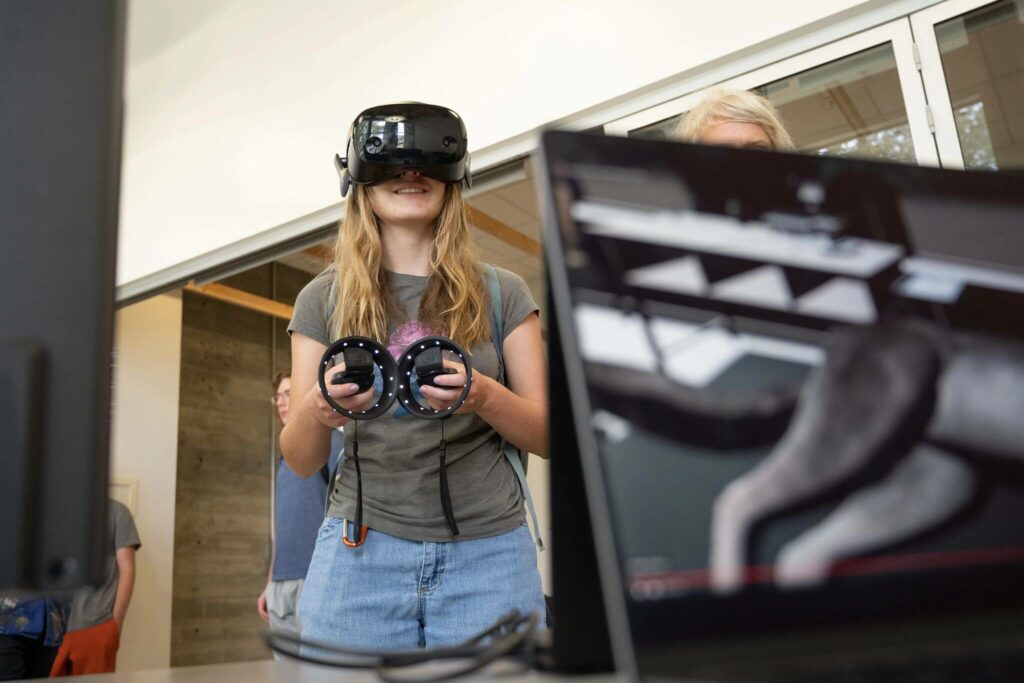
Gabby Reiland explores a veterinary virtual reality environment with Cyanne Tornatzky, associate professor of electronic art, at the 2022 Art Fest. Credit: John Eisele, CSU PhotographyFor example, at the James L. Voss Veterinary Teaching Hospital, the interdisciplinary effort to create VetVR provides students with virtual reality training in veterinary medicine. The Natural User Interaction Laboratory in the College of Natural Sciences is the only CSU research group studying the use of augmented and VR technologies. For its 2021 exhibition, the Department of Art and Art History featured student works in its virtual Hatton Gallery.
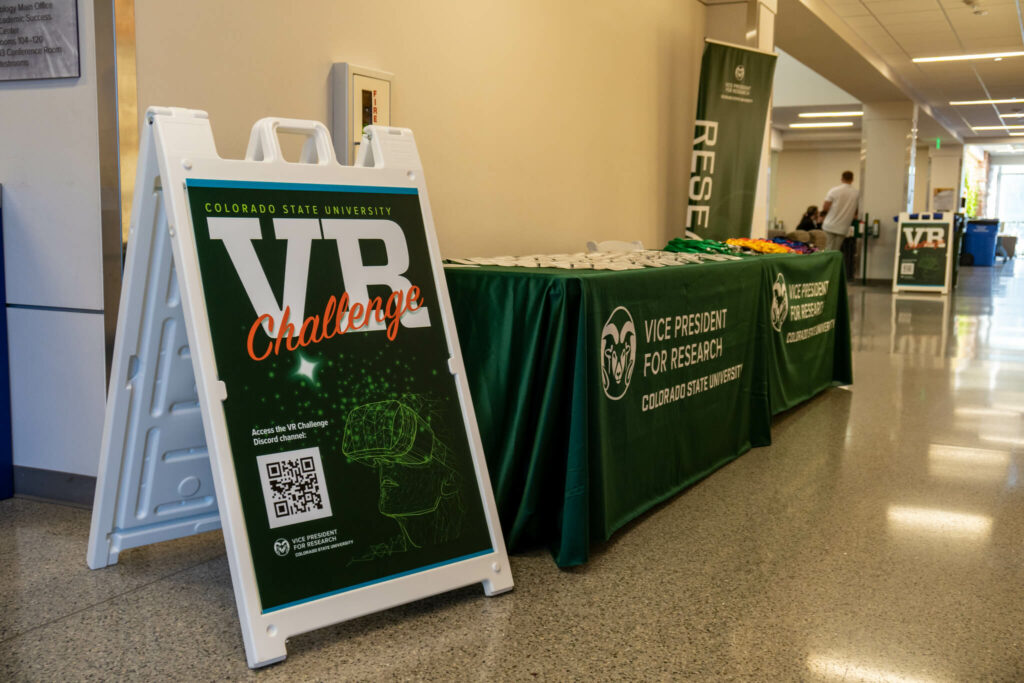
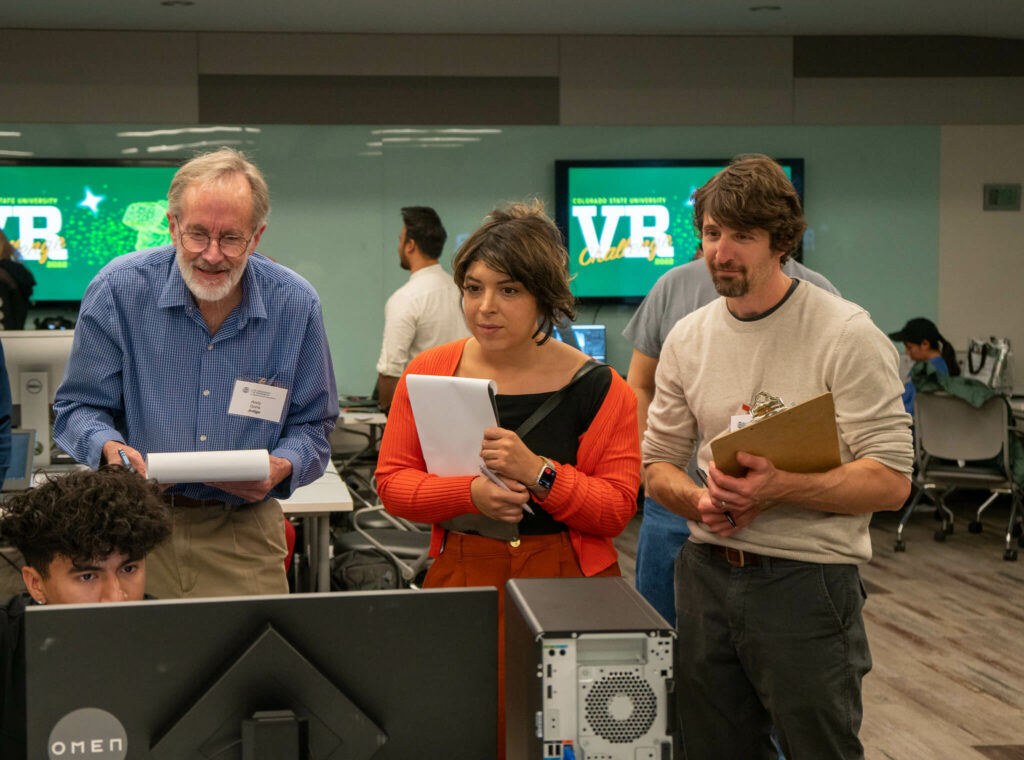
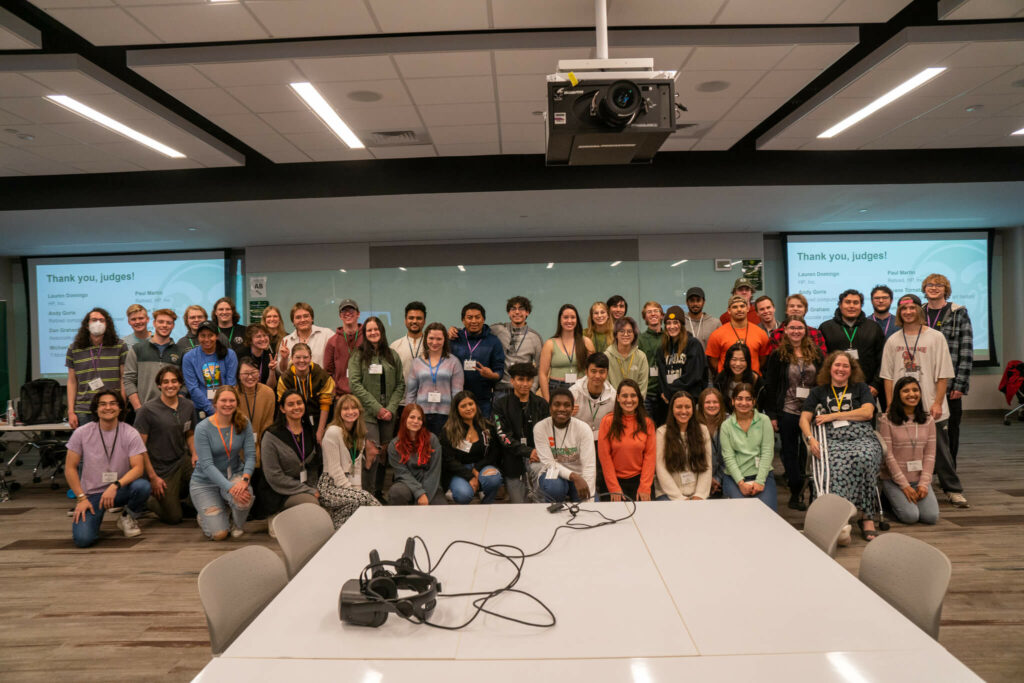
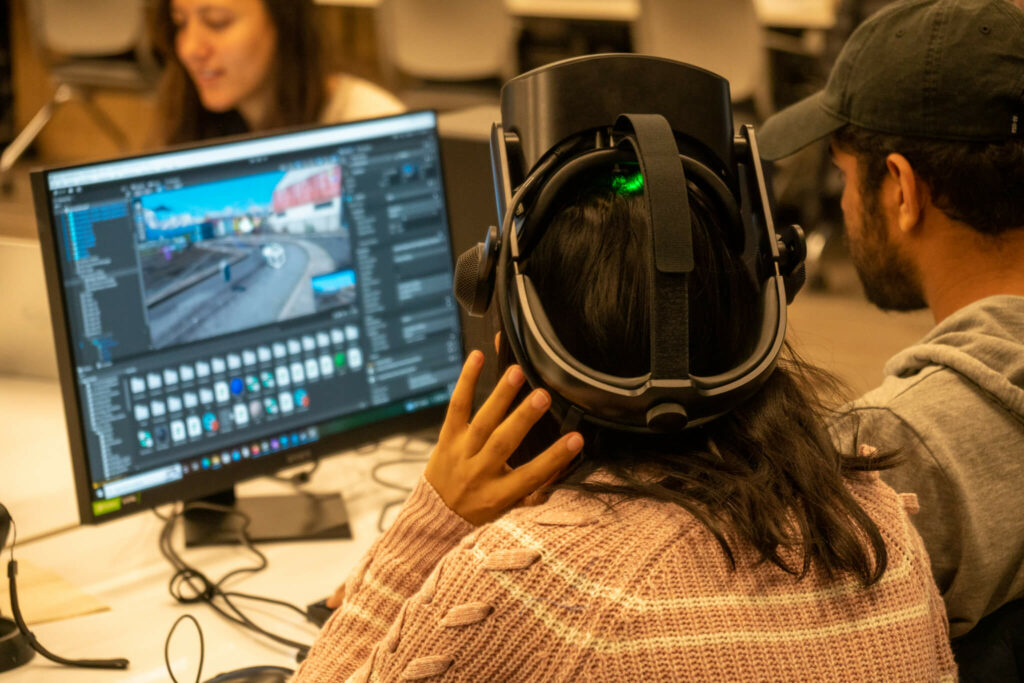
The Office of the Vice President for Research hosts the Virtual Reality Challenge allowing students from all over campus to participate in brainstorming, designing, and producing a prototype VR experience, among several other projects and resources for the office’s virtual reality initiative. Last year’s VR Student Challenge focused on mental health.
In addition, the OVPR hosted a symposium titled “Collaborations in Mental Wellness” to explore solutions to the increasing rates of depression, anxiety, and suicide among college students, veterans, and military-age people. The event included demonstrations of VR technology used to benefit mental health.
The CSU Health Network is partially funded by CSU student fees, and most services are available for fee-paying CSU-Fort Collins students only. The network does not provide any virtual reality services to CSU students. For more information, visit the eligibility, fees, and service charges page. If you are a CSU student experiencing a mental health crisis, please call (970) 491-6053 to speak with a counselor.
Haley Candelario is a student communication specialist in the Office of the Vice President for Research.